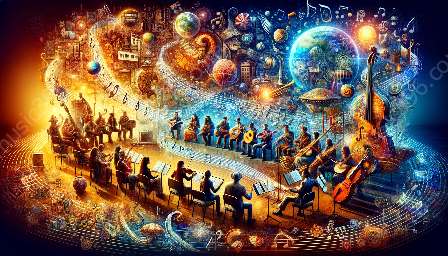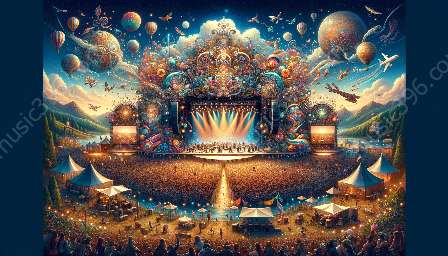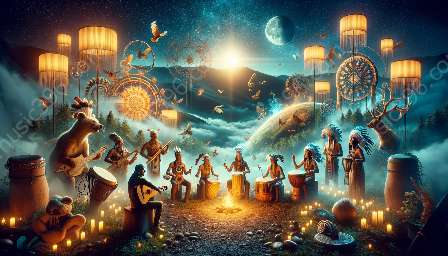Music has always been a reflection of culture, and the way different cultures embrace and transform popular music genres provides a fascinating lens through which to understand the dynamic relationship between music and culture.
The Influence of Culture on Music Genres
One of the most remarkable aspects of music is its adaptability and ability to evolve within diverse cultural contexts. As music travels from one region to another, it assimilates local influences, resulting in unique hybrid genres that speak to the multicultural tapestry of society.
Musical Genre Evolution in the Americas
In the Americas, popular music genres like jazz, blues, and salsa have undergone significant transformations as a result of cultural interactions. Jazz, for example, originated in African American communities in New Orleans and later spread across the United States. However, its fusion with elements of Cuban music in the 1940s gave rise to Latin jazz, a genre that embraced and transformed both African American and Latin cultural influences.
Cultural Syncretism in Latin America
Latin America offers a rich tapestry of musical traditions, where unique regional styles have been shaped by historical, social, and cultural influences. In countries such as Brazil, the interplay between African, European, and indigenous cultures has produced genres like samba and bossa nova, which have gained global recognition for their rich melodic and rhythmic diversity.
Asian Influence on Western Music
Western music genres have also been shaped by the influence of Asian cultures. The adoption of traditional Asian instruments and musical scales by Western artists has led to the creation of distinctive fusions such as Asian-infused electronic music and contemporary world music that transcend cultural boundaries.
The Role of Music in Cultural Identity
Music serves as a powerful medium for preserving and expressing cultural identity, often becoming a symbol of unity and pride within communities. As popular music genres cross cultural borders, they become vehicles for cultural exchange, enabling individuals to connect with their heritage while also embracing new influences.
Preserving Cultural Heritage through Music
Many indigenous cultures around the world have used music as a means to preserve their traditions and stories. Traditional musical genres often carry deep historical significance and serve as a conduit for passing down cultural knowledge from one generation to the next.
Empowering Cultural Expression
Through the transformation of popular music genres, marginalized communities have found a platform to voice their experiences and struggles. Hip-hop, for instance, emerged as a vehicle for African American youth to express their frustrations and experiences of urban life, later evolving into a global phenomenon that has inspired cultural and social movements in diverse communities.
Globalization and Cultural Fusion in Music
The advent of globalization has accelerated the exchange of musical ideas and styles across the world, leading to the emergence of transnational genres that blend cultural elements in innovative ways. This phenomenon underscores the dynamic nature of music as a reflection of interconnected global cultures.
Transcultural Collaborations in Music
Creative collaborations across cultures have become increasingly common in contemporary music production. Artists from different cultural backgrounds collaborate to create innovative fusions that incorporate diverse musical elements, contributing to a more inclusive and interconnected global music scene.
Reinterpretation of Global Hits
Global hits from popular music genres have been reinterpreted and localized in different cultural contexts, giving rise to new interpretations that reflect local sensibilities. This process not only enriches the original genre but also highlights the capacity of music to adapt and resonate with diverse cultural experiences.
Conclusion
Exploring how different cultures embrace and transform popular music genres reveals the intricate interplay between music and culture. As cultures interact and influence one another, popular music genres serve as dynamic expressions of the diverse experiences and traditions that shape our global society.






















